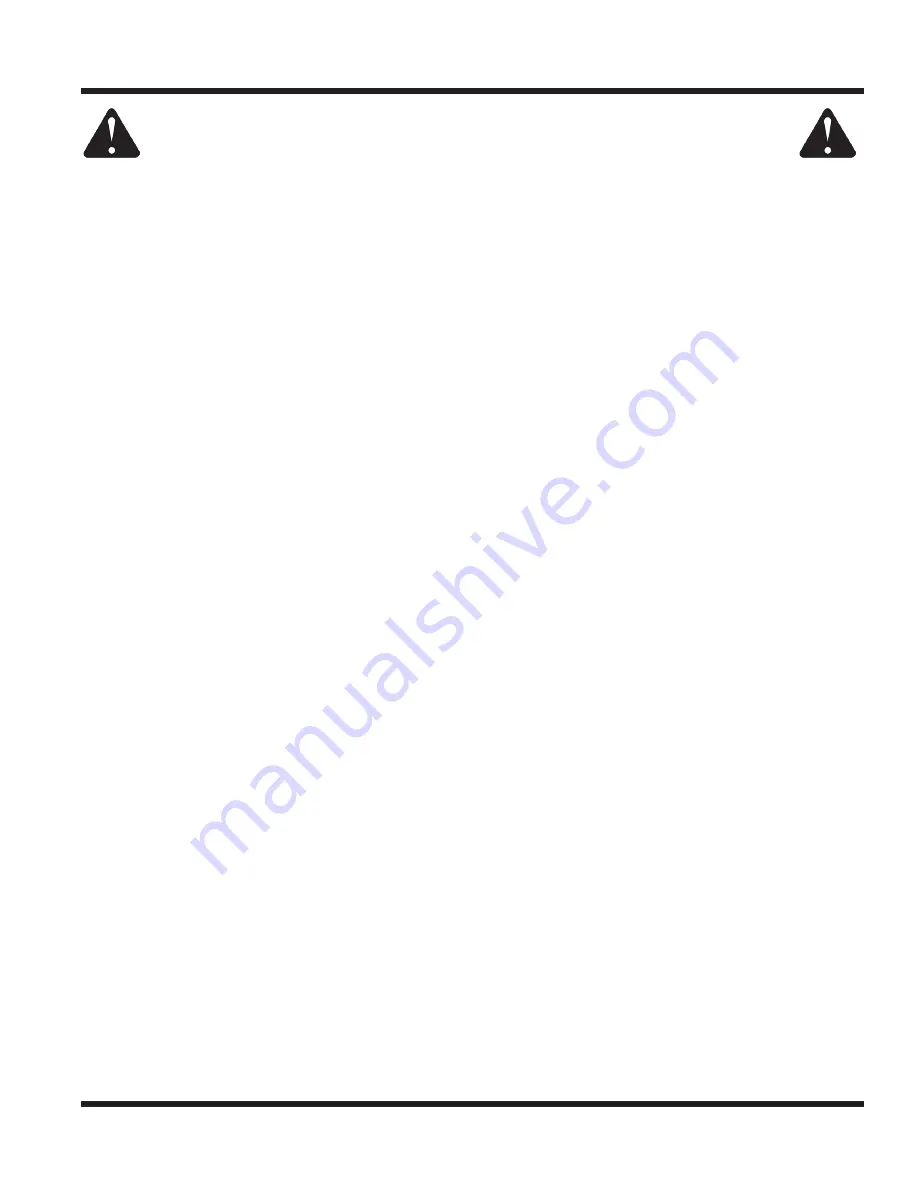
SAFETY
Safety - 11
General Safety Procedures
for Ventrac Power Units, Attachments, & Accessories
• Check the fuel lines for tightness and wear on a regular basis. Tighten or repair them as needed.
•
To reduce the hazard of fire, keep the battery compartment, engine, and muffler areas free of grass, leaves,
and excess grease.
•
Do not touch the engine, the muffler, or other exhaust components while the engine is running or immedi
-
ately after stopping the engine. These areas may be hot enough to cause a burn.
•
Allow the engine to cool before storing and do not store near an open flame.
• Do not change the engine governor settings or over-speed the engine. Operating engine at excessive
speeds may increase the hazard of personal injury.
• Springs may contain stored energy. Use caution when disengaging or removing springs and/or spring
loaded components.
• An obstruction or blockage in a drive system or moving/rotating parts may cause a buildup of stored en-
ergy. When the obstruction or blockage is removed, the drive system or moving/rotating parts may move
suddenly. Do not attempt to remove an obstruction or blockage with your hands. Keep your hands, feet,
and clothing away from all power-driven parts.
Fuel Safety
• To avoid personal injury or property damage, use extreme care in handling gasoline. Gasoline is extremely
flammable and the vapors are explosive.
•
Do not refuel the machine while smoking or at a location near flames or sparks.
• Always refuel the machine outdoors.
•
Do not store the machine or fuel container indoors where the fumes or fuel can reach an open flame,
spark, or pilot light.
• Only store fuel in an approved container. Keep out of the reach of children.
•
Never fill containers inside a vehicle or on a truck or trailer bed with a plastic liner. Always place the containers
on the ground away from your vehicle before filling.
• Remove the machine from the truck or trailer and refuel it on the ground. If this is not possible, refuel the
machine using a portable container, rather than from a fuel dispenser nozzle.
• Never remove the fuel cap or add fuel with the engine running. Allow the engine to cool before refueling.
• Never remove the fuel cap while on a slope. Only remove the fuel cap when parked on a level surface.
• Replace the fuel tank cap and the container cap securely.
•
Do not overfill the fuel tank. Only fill to the bottom of the fuel neck, do not fill the fuel neck full. Overfilling
of the fuel tank could result in engine flooding, fuel leakage from the tank, and/or damage to the emissions
control system.
• If fuel is spilled, do not attempt to start the engine. Move the power unit away from the fuel spill and avoid
creating any source of ignition until the fuel vapors have dissipated.












































